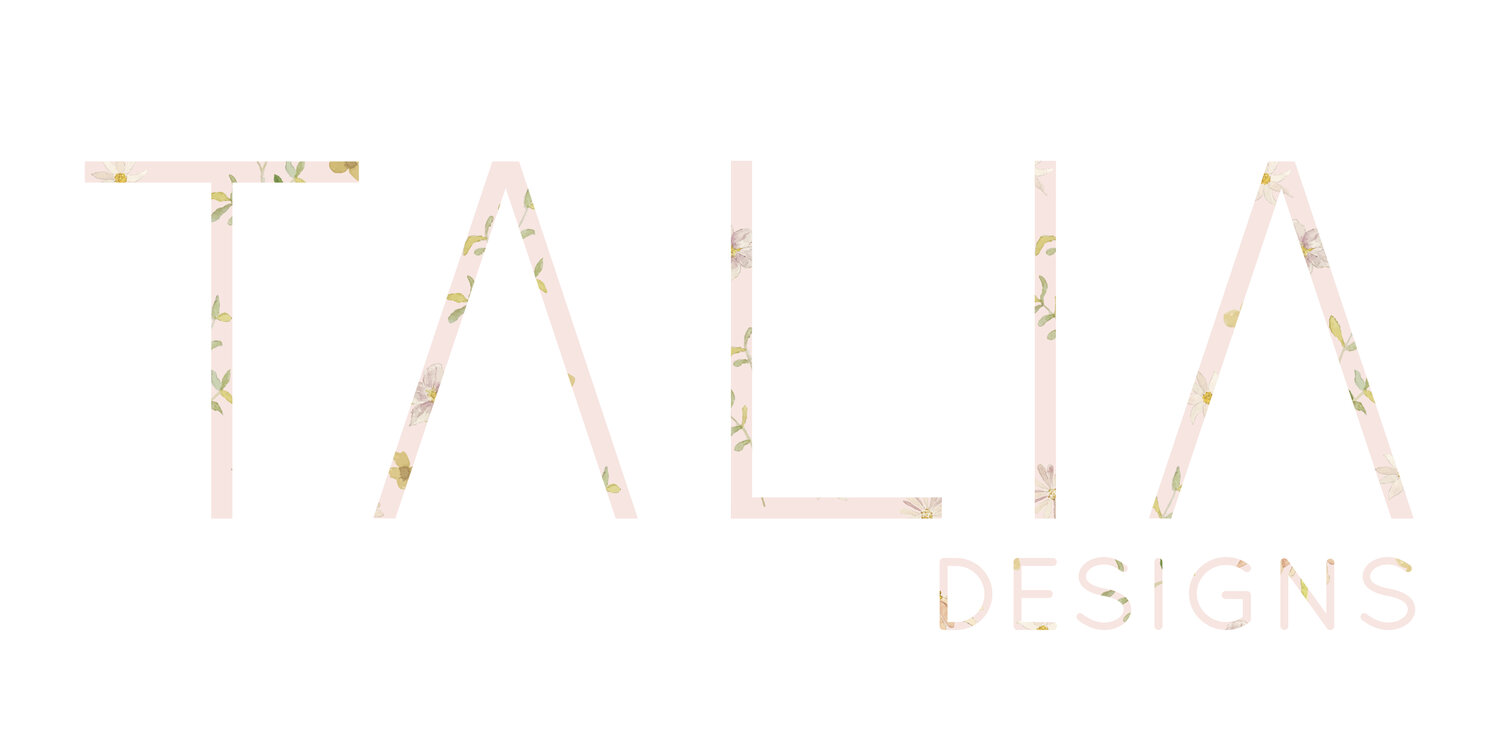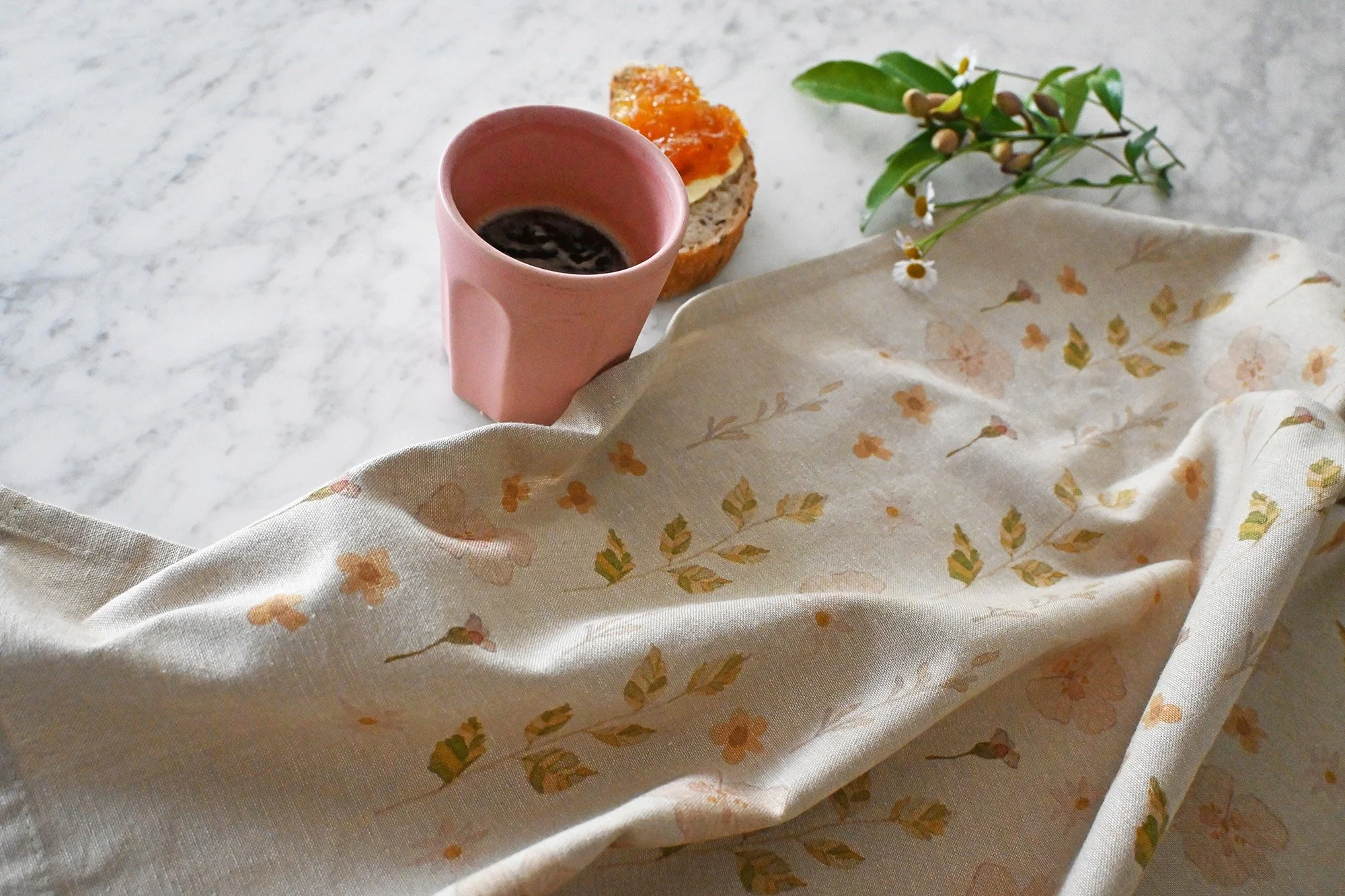What kind of fabric is best for kitchen tea towels?
The humble tea towel is a staple found in nearly every kitchen. From drying dishes and fresh produce, covering rising dough, holding hot cookware, wrapping baked goods, to serving as a makeshift placemat — the tea towel is a true hero of the kitchen.
Did you know that the name “tea towel” comes from its original use in 18th-century England? The tea towel, as we think of it today, first emerged as a fine linen cloth used by the upper class. During this time, women would often use tea towels to handle delicate china and porcelain teacups. These cloths were specifically associated with tea time — used to dry or polish fine china, teapots, and silverware, as well as to cover baked goods or a teapot. Tea towels also lined tea trays when serving, all centred around the beloved English pastime of having tea!
In the Victorian era, tea towels became more decorative, and by the 19th to early 20th century, with the Industrial Revolution and spread of cotton textiles, tea towels became more accessible to the middle and working classes. Cotton became the popular fabric choice. They were used both practically and decoratively in households, expanding from being used only at “tea time” to a general, everyday kitchen tool.
Popular Tea Towel Fabric
Linen TEA Towels
Linen tea towels are highly absorbent and quick-drying but tend to be more expensive. Historically, they are the OG tea towel. They also have a more textured feel, which some users appreciate for its durability, though others may find it harsher against delicate surfaces.
COTTON TEA TOWELS
Cotton tea towels are highly absorbent, making them excellent for drying dishes and hands. They're soft, durable, and machine-washable, which makes them easy to clean and reuse. Cotton is also breathable and gentle on delicate surfaces, not to mention a natural fibre, making them a great eco friendly choice.
MICROFIBRE TEA Towels
Microfibre is renowned for its superb absorbency and ability to pick up fine particles. However, microfiber towels are synthetic and less eco-friendly. They can also sometimes leave streaks or lint on some surfaces, particularly glass.
Blended Fabrics
Some kitchen tea towels combine cotton with polyester or linen to balance absorbency, texture, and durability. While these blends can perform well, pure cotton tea towels generally offer a more natural feel and better breathability.
Why I went with 100% organic cotton for my tea towels
1. High Absorbency, Durability & Longevity
Cotton fibres naturally absorb a significant amount of liquid, making cotton tea towels ideal for drying dishes and wiping surfaces. Their high absorbency means they can handle spills efficiently and dry quickly afterward, reducing the chance of unpleasant odours or mildew. Cotton tea towels are also strong and durable, which means they are easy to clean and stand up well to numerous laundry cycles. This durability is important for tea towels, which need frequent washing due to exposure to food, grease, and bacteria. A well-made cotton tea towel can last for years if cared for properly.
2. Softness and Gentle on Surfaces
Unlike some rougher fabrics, cotton tea towels are soft enough to use on delicate items like glassware and non-stick cookware. They are less likely to scratch or leave lint behind, ensuring your kitchenware looks its best.
3. Breathability and Comfort
Cotton is a breathable fabric, which helps kitchen towels dry faster after use or washing. This breathability also means cotton tea towels can be comfortably used as oven cloths or handle covers without getting excessively hot or retaining dampness.
4. Eco-friendly Option
For environmentally conscious consumers, cotton tea towels offer a natural and biodegradable alternative to synthetic fabrics like microfibre. Cotton is renewable and doesn’t involve plastic microfibres that can pollute waterways.
My tea towels are made from 100% ACO certified organic cotton. ACO certified organic cotton refers to cotton that has been certified by Australian Certified Organic (ACO), one of Australia's largest and most respected organic certification bodies. This certification ensures that the cotton is grown and processed according to strict organic and environmental standards.
Organic cotton is grown chemical-free and supports sustainable farming practices that protect soil health, water quality, and biodiversity. ACO certified organic cotton tea towels are a healthier, eco-friendly, and high-quality option for everyday kitchen use — and you can be assured they have been ethically made.
There’s really no right or wrong choice when it comes to tea towel fabric — it all comes down to personal preference. That said, I’ve always had a soft spot for natural fibres. My organic cotton tea towels come in both white and beige, so you can reserve one for the refined tradition of 18th-century “tea time”, and keep the other ready for all the everyday kitchen tasks.







